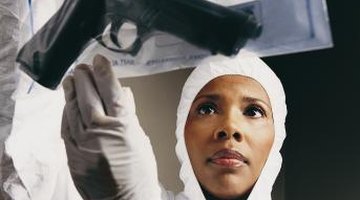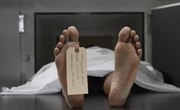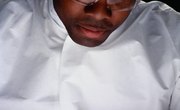Medical forensic science applies medical knowledge, such as pathology, to criminal and civil law. Medical areas for study often include DNA, serology, toxicology and forensic drug chemistry, with medical students often pursuing dual degrees. The best colleges for criminal medical forensics are top-ranked in medical research and medicine by major ranking organizations.
Boston University
Boston University offers a research-grade, accredited Master's of forensic science degree through its School of Medicine, preparing students to work as forensic scientists, DNA analysts and in other related disciplines. Students receive laboratory and practical experience at the university facilities. In addition, School of Law professors and practicing attorneys teach criminal law courses, allowing students to get a sense of what it means to provide expert testimony and undergo cross-examination.
George Washington University
The George Washington University of Washington, D.C., offers an accredited master's degree in forensic sciences with three concentrations: forensic chemistry, which trains students to analyze drug chemistry and trace elements including hair, fibers and other materials; molecular biology, which covers the examination of body fluid stains, DNA extraction, physical sciences such as firearm marks and the presentation of evidence; or toxicology, which trains students to analyze biological samples and interpret the findings, including the presence of drugs. Students in all programs are encouraged to participate in an internship at a laboratory or agency.
University of California at Davis
The University of California at Davis offers an accredited master's in forensic science that brings together key faculty across disciplines, such as science, medicine and law, in collaboration with the California Criminalistics Institute. The goal of the program is to promote critical thinking skills and innovative thesis research with peer-review publication and to prepare students for forensic science laboratory careers. Students have opportunities for concentrations, such as in alcohol impairment, DNA analysis, micro analytical methods and toxicology. The degree is the only research master's and forensic science degree in the University of California system.
University of Florida
The University of Florida at Gainesville offers an online, accredited master's degree program in forensic science with concentrations in forensic science, DNA and serology, toxicology or drug chemistry that can be taken in conjunction with another degree program outside the department. The forensic science track trains students with course work such as forensic medicine, forensic anthropology and biological evidence. The DNA and serology track builds a strong foundation in serology, blood splatter, genetics and DNA analysis for such professions as the military and medicine.
Forensic Pathology
Some medical schools offer clinical rotations or fellowships in forensic pathology, such as the Medical University of South Carolina at Charleston, which offers an autopsy rotation during residency and a forensic pathology fellowship that offers an accredited one-year training program post-medical school. The University of Alabama at Birmingham also offers a one-year fellowship in forensic pathology in a department that examines about 140 homicides each year. Fellows in both university programs conduct scene investigations, postmortem examinations and provide expert testimony.
Related Articles
References
- National Association of Medical Examiners: Academic Forensic Pathology
- Times Higher Education World University Rankings: Top 100 Universities for Life Sciences 2013-14
- CWTS Leiden Ranking: CWTS Leiden Ranking 2013, Biomedical and Health Sciences
- George Washington University: Columbian College of Arts and Sciences: The Department of Forensic Sciences
Writer Bio
John Huddle is an Army veteran with enlisted service as general hospital staff and hospital chaplain's assistant. His career also included stints as a teacher, adjunct faculty, administrator and school psychologist. Twice, Dr. Huddle was a major party nominee for state office. He also served as a director on several nonprofit boards. Today he enjoys consulting and lobbying for underdog causes.











